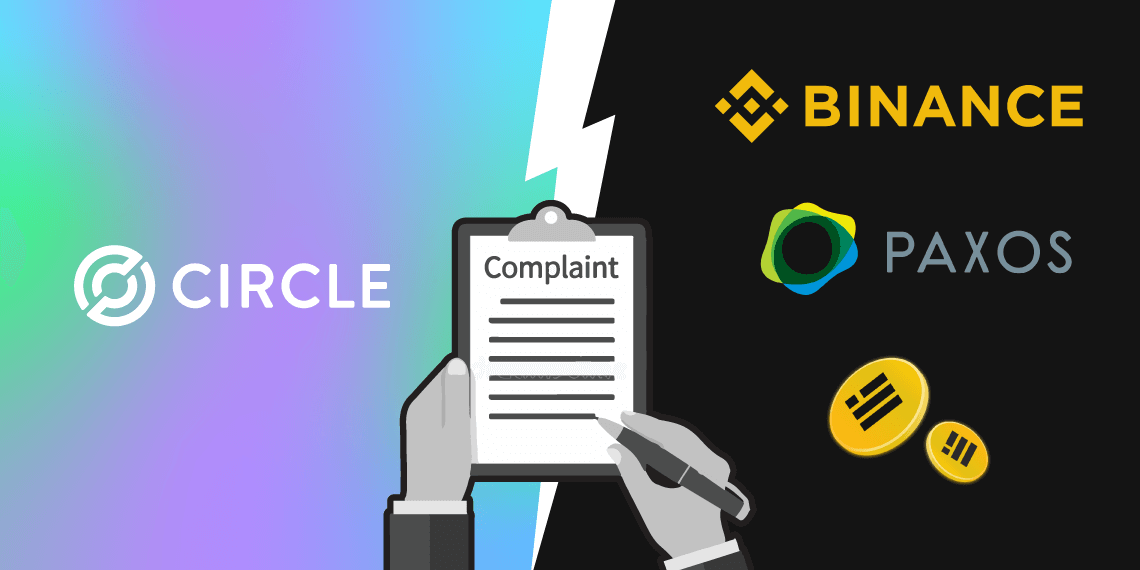Stablecoin issuer Circle raised concerns with the New York State Department of Financial Services last year regarding Binance‘s management of reserves for its own tokens, which it claims are not enough to support tokens issued by the firm.
What Circle claims
The US-based Circle is the issuer of the USDC stablecoin and shares a regulator with Paxos Trust Co., which issues Binance-branded stablecoin BUSD.
Circle alerted the watchdog last year to issues that its team had found in blockchain data that showed Binance did not store enough crypto in reserve to support tokens it had issued, according to a source close to the matter who asked not to be named.
Binance’s under-collateralization of reserves for its version of BUSD has caused issues. Binance pegs or B-Tokens are versions of third-party coins such as Bitcoin, Ether, Circle’s USDC, and Paxos’s BUSD, of which Binance mints billions of dollars worth of.
The company’s goal is to make these tokens usable on other blockchains than the ones they were built for, such as Binance’s own BNB Smart Chain.
The company assures that B-Tokens are backed 1-to-1 by locked reserves of the coins they are based on, stored separately from customer funds, and often do not involve any oversight from the original issuer.
However, Circle has reported that the B-Token version of USDC was impacted, as well as the BUSD, as Binance only had $100 million in stored collateral to support $1.7 billion in Binance-peg USDC.
The USDC issuer claimed that Binance’s storage of cryptocurrency was inadequate to support the tokens issued by the firm. The complaint preceded a warning by the regulator for another stablecoin issuer to end its partnership with the trading platform.
Binance’s management of BUSD
The New York State Department of Financial Services directed Paxos to end its association with Binance, citing “numerous unresolved issues” with regard to Paxos’ oversight of its relationship with the exchange concerning BUSD, the stablecoin that Paxos releases under the Binance brand.
The regulator went on to state that it does not regulate a token that Binance issues as a proxy for BUSD, nor is Paxos authorized to issue it.
The regulator determined that Paxos was unable to manage BUSD “in a secure and sound manner based on comprehensive supervisory involvement, a recent review, and Paxos’ inability to rectify significant issues associated with Paxos-issued BUSD in a timely manner,” a spokesperson for the regulator stated in an email.
As a result, the Department ordered Paxos to halt minting BUSD and to address key deficiencies requiring additional action. The Department is closely monitoring Paxos to ensure that the firm can facilitate redemptions in an organized manner, subject to improved, risk-based compliance protocols.
Binance admitted last month to issues related to its version of BUSD, which was historically undercollateralized. This created a situation in which the company would regularly mint new B-Tokens without first locking up the equivalent collateral in a designated wallet.
Additionally, Binance mistakenly mixed the reserves for almost half of its 94 B-Tokens with exchange-customer funds. A Binance spokesperson stated last month that the company would transfer reserve assets into their dedicated collateral wallets.
Binance has implemented a policy that automatically converts any deposits of USDC and certain other stablecoins on its exchange to BUSD, reducing Circle’s share of the stablecoin market.





